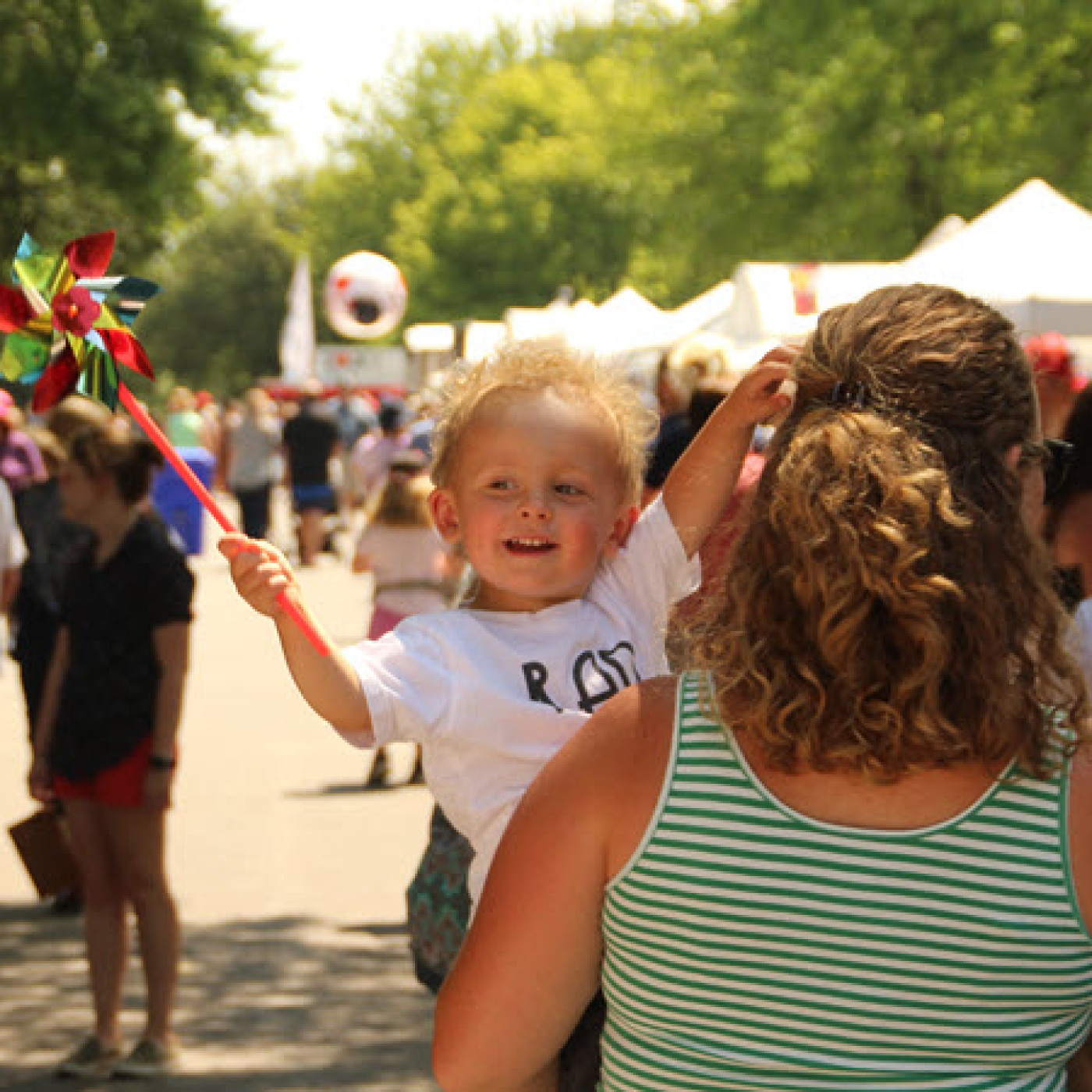New York Festival Ready to Return

Volunteers Run Neighborhood Event
An arts festival with a long history is returning to the streets of a historic neighborhood in Rochester, New York, this summer after not taking place since 2019.
“Everyone is so excited for the festival to be back — from the planning committee to the volunteers, vendors, and sponsors,” said Jennifer Gallo, chairperson of Corn Hill Arts Festival’s Media & Sponsor Relations Committee.
Like many festivals throughout the country, the COVID-19 pandemic resulted in the event not taking place in 2020 and 2021. This year’s festival is set for July 9 and 10.
“This is our first year back, and we will be following whatever guidelines are in place at the time of the festival,” Gallo said.
The Corn Hill Arts Festival began more than 50 years ago and has grown a lot since that time. When it began it 1969, it was on just one street in the Corn Hill Neighborhood, she said.
Today, this fine arts festival takes place across nine streets in the neighborhood. “Over the years, this has become a fabric in the Rochester community,” Gallo said.
The festival is run by more than 200 volunteers, and most of them live in the Corn Hill Neighborhood. “The neighborhood is mostly residential, but there are some churches and a school located in the footprint as well,” Gallo said.
She said this is what makes the Corn Hill Arts Festival so unique — the fact it is run by volunteers and located in a historic neighborhood.
Numerous committees are involved in planning and running the event. Gallo said the committee chairs meet once a month, and each committee chair finds volunteers to assist with their given responsibilities.
There is also a festival chairperson, who usually serves in that role for two years. The chairperson has an assistant chairperson who then becomes the next chair for two years. This year’s chair is Bill Belecz, and the assistant chair is Robin Plummer.
ESL Federal Credit Union is the event’s presenting sponsor, and Gallo said they are thankful for that support each year.
The Corn Hill Arts Festival is a juried event. Gallo said it features artists in consumable crafts, jewelry, mixed media, painting, drawing, graphics, photography, pottery, ceramics, sculpture, glass, textiles, weaving, leather, and woodworking. “We usually have around 350 artists, and we will have around 300 this year, which is a great turnout!” Gallo said.
She said many of the artists are from the Northeast region of the country, but artists from across the United States and Canada participate as well. Gallo wants first-time applicants to know that acceptance into the two-day festival includes dedicated street managers, festival-wide security day and night, print/digital/radio advertising, and free overnight parking.
What she would tell artists who have not exhibited at the festival in a few years is that “we have been on a two-year hiatus due to COVID-19, but we are excited to be back and hope returning artists are, too!”
In addition to art, this festival has four music stages, two beer and wine gardens, a food court, an Emerging Artists Expo, and a Fairy Houses Showcase in its family-fun area. “Due to the range of activities (art, music, beer and wine, family fun), there is a range of demographics that attend the festival,” Gallo said. “We have an older demographic interested in the art, a younger demographic interested in the music, and the family demographic who enjoys our family area.”
The nine streets in the neighborhood are closed for the festival. “We also have Avery Mall (small park/walking area), Lunsford Circle (gazebo/sitting area), and the Food Court (large field),” Gallo said.
The mall honors Ralph Avery, who was a Corn Hill resident and artist. Many of his watercolors were scenes of Rochester and Corn Hill. Throughout his career, Avery contributed to The Saturday Evening Post and Reader’s Digest.
Marketing and promotion are important aspects of every festival. “We are thankful for our media partners who provide media support for the festival, including TV, print, digital, and radio promotion,” Gallo said.
When asked about the most common mistakes new promoters make and her advice related to avoiding them, Gallo said, “I think every festival is different, but it comes down to planning ahead and communicating with your team and the vendors that are involved.”
